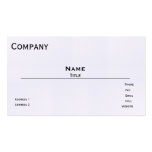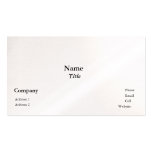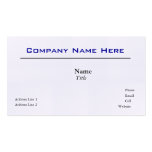Google is engaged in a constant, uphill battle against those who try to game the SERPs for profit, distorting search results with spammy tactics and questionable link acquisition. In 2012, the first Penguin update was implemented to deal with sites that were using unnatural links to boost their search engine ranks.
As a result of the original Penguin, several websites were penalized, which ultimately removed them from visibility in the SERPs. It took some sites quite a bit of time to recover, and sites that made legitimate attempts to restore their rank in the search results were forced to wait for the next update of the algorithm. Now, everything has changed with Penguin 4.0.
“Historically, the list of sites affected by Penguin was periodically refreshed at the same time. Now Penguin is real-time, so changes will be visible much faster, typically taking effect shortly after we recrawl and reindex a page,” wrote Gary Illyes on the Google Webmaster blog.
The Big Changes with Penguin 4.0
Like virtually every algorithm update from Google, multiple changes often occur. In the case of Penguin 4.0, there are some significant changes to the Penguin algorithm overall. These include:1. Addition to Google’s Core
There are plenty of secondary algorithms used by Google, but its “Core”, as Google calls it, is the primary group of dozens of algorithms used to evaluate your site. These algorithms analyze a variety aspects of your site’s design and content then weigh them against a user’s search query to determine your rank.Google is now moving Penguin into this group of core algorithms, which will make it a more significant deciding factor when it comes to search rank.
2. Constant Updates
As Gary Illyes mentioned, Penguin 4.0 is going to update in real-time, rather than updating only periodically. The constant refreshing means that sites won’t have to wait as long to restore their rank if they catch and eliminate a bad link to comply with Penguin.3. Decrease in Domain Penalties
Previously, if you built a spammy link on a site that pointed back to one of your landing pages, and that link was flagged as an unnatural one, your entire domain was likely to be flagged. This resulted in a site-wide penalty that would kick your entire domain down in the search results.With the new Penguin update, a full domain penalty is far less likely to occur. Instead, you’re more likely to see penalties on individual pages that receive spammy links.
What the Update Means for Marketers – Are You at Risk?
Updates like Penguin’s latest one have a greater chance of impacting more websites, specifically because they involve the evaluation of links coming into your site and the authority and quality of the domains they come from.While you have some control over the links you’re directly building, you have far less control over the sources of links, since Google’s position on a domain could change at any time – and now much faster after Penguin’s inclusion as a core algorithm.
Here are some takeaways to keep in mind:
Quick Lift, Quicker Penalties
If you were recently penalized for link building, you can rectify the damage much more quickly than before. That means you’ll see lift and restoration to previous search rank faster than ever before when you quickly disavow or deal with bad links.On the other side of it, those penalties will come swiftly – faster than ever before. I’d like to think you’re building links naturally and sticking to white-hat, completely legit practices. If you’re edging into gray hat SEO and acquiring links through loopholes, understand that you’re putting your site and your most important landing pages at risk. If these get flagged, you’ll face a swift penalty from the algorithm.
A Fairer Algorithm
Nowadays, there is a big emphasis on content marketing, as businesses, influencers, and marketers rely heavily on guest blogging to build natural links and grow referral traffic. Marketers who produce really awesome content are going to see significant rewards from their efforts.Granularity in Fixes
Since Penguin 4.0 is doing away with domain-level penalties, and instead targeting the offending link destinations (landing pages), you now have the opportunity to fix issues on a granular level. This is a good opportunity for marketers to learn from their mistakes without losing a tremendous volume of organic search traffic.Better Evaluation
I expect this update will force marketers to spend a little more time evaluating where their links are coming from, especially when they’re actively building organic links. While the impact may be less significant, it will now happen faster and you should aim to protect your search rank at all times.Ultimately, the smartest approach is focusing on building your brand rather than building links. Creating great content will generate links naturally, especially if you’re guest blogging and creating the kind of quality, 10x content that people want to share.
Aim to tell your story, and rely on your metrics to determine what content your audience is most interested in seeing. Build on that, promote it, distribute it properly, and continue to repurpose your best content. If you’re not actively trying to build links, you’ll never really be at risk of crossing the line with the algorithm because your links will come from natural acquisition.







